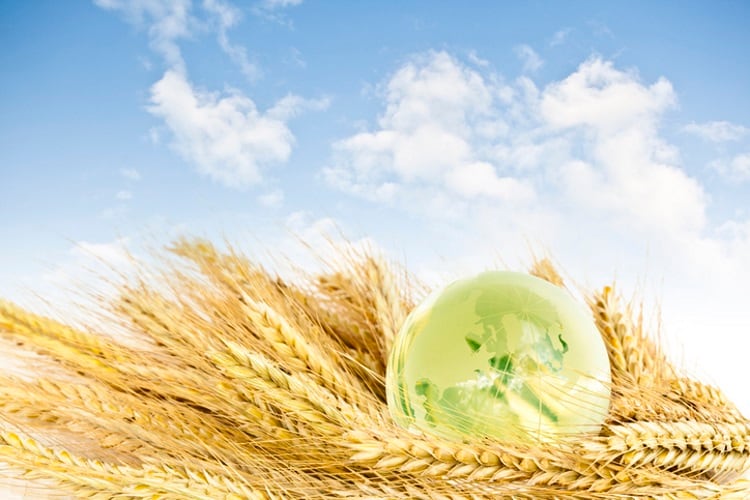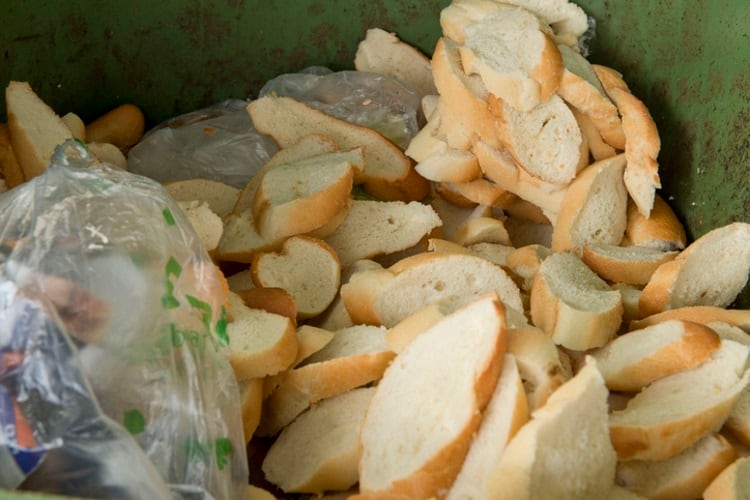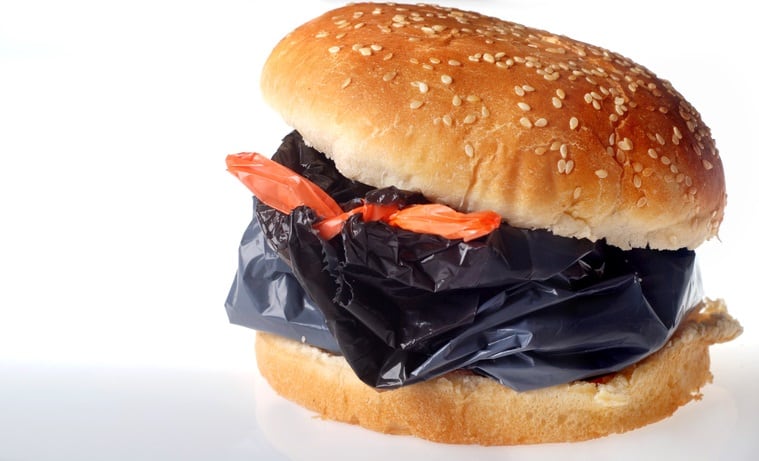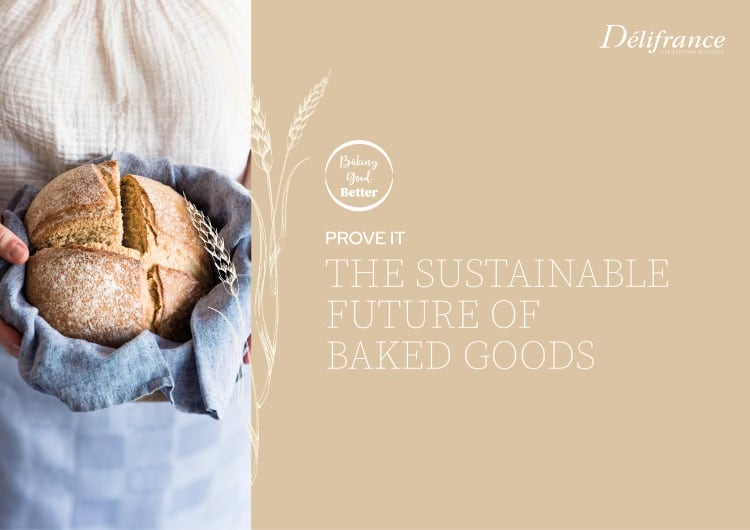Around one-third of all the food produced in the world goes to waste: that’s equal to about 1.3 billion tons of grains that either never leave the farm, are lost or spoiled when converted into the end product or thrown away before it reaches the consumer. The World Wildlife Fund says that’s enough calories to feed every undernourished person on the planet.
According to food waste watchdog Wrap, 680,000 tonnes of ‘avoidable’ bakery waste in the UK is tossed each year at a cost of £1.1bn, about 80% of it from packs that have been opened but not finished.
But bakery waste isn’t just a social or humanitarian concern - it’s an environmental one. When food waste goes to landfill, it rots and releases methane - a greenhouse gas that is 25% more potent than CO2 at trapping heat in the atmosphere and contributing to global warming.
Shared blueprint for society

Hence the Environmental Act, passed by government in 2021, but coming into effect this year, requiring businesses to separate food waste from their general waste and have it collected separately.
The legislation supports the Government’s commitment to the UN’s Sustainable Development Goals (SDGs), a collection of 17 interlinked objectives designed to serve as a ‘shared blueprint for peace and prosperity for people and the planet, now and into the future’. Goal 12 is to halve food waste by 2030.
All UK business will have to comply with the new legalisation but those most effected will be within the retail, hospitality, healthcare and education sectors, which produce a much higher volume of food waste.
The new legalisation sets out that:
- All food waste must be separated from general waste for collection.
- Food cannot be sent to landfill or incineration; it must be sent for recycling. The two methods that can be used are composting or anaerobic digestion.
- Macerators (units that chop and flush food down drains using high volumes of water) or liquidising digesters will be banned completely (already banned in Scotland, Wales and Northern Ireland, with England to follow suit this year).
- Drying or dewatering systems will still be permitted - these can reduce the volume of food waste when it comes to collection.
- All fees payable for waste recycling will be the responsibility of the business creating it.
As per the final point, the downside is another unwanted overhead in these belt-tightening times. Not only that, you will also be required to fill out an annual waste return detailing how much waste they have disposed of.
However, Nathan Gray, head of Sustainabiity at Reconomy, believes there is an upside.
“It’s possible that waste segregation can have a positive effect on your costings,” he said.
“Generally, food waste is quite heavy, so disposing of it among your general waste can increase costings. When separated, your general waste should be much lighter.
“Segregated food waste, for instance, is up to five times cheaper to dispose of per kilo. Therefore, your general waste will not only be lighter, but overall cheaper to dispose of.”
A waste audit, too, may be beneficial in helping you to itemise the outgoing waste so a you can decide how to better manage your processes.
Food waste recycling in action

According to Gray, some firms may be less prepared for the new legislation than others – particularly smaller concerns that have little experience of sustainable waste management.
So what should you start doing?
Separate food waste into a different bin for collection. An extra food waste bin will be needed in addition to setting up a new collection day.
Refrain from using macerators or liquidising digestors as these have now been banned completely.
Food waste must not be sent to landfill but send to recycling through composting or anaerobic digestion instead. A composter effectively transforms food waste into highly effective fertiliser that can then be used to grow fresh fruit and vegetables in line with circular principles.
“Typically, minimal resources are required to run such a device,” said Gray.
“Only around 15-20 minutes of labour is required per day, while the cost of running the composter would only include cheap ‘bulking agents’, such as wood chips and coffee grounds, alongside minimal electric power.”
Another example is the Eco-Smart Food Waste Dryer. An overnight drying cycle reduces waste volume by 80%, turning it into a sterile powder that can be used to generate energy from biogas.
Tips to minimise bakery waste

Prevention is obviously the best scenario - not creating waste in the first place.
Turn old products into new: transform unsold bread or pastries into a ‘bread and butter’ slice (a play of bread and butter pudding or French toast); or incorporate plain cakes into a trifle and other layered desserts. Several UK retailers are following this practice by repurposing unsold bread into frozen garlic bread.
Recycle ingredients: French bakery La Panetière des Hameaux has developed a cookie recipe based on the breadcrumbs made from unsold bread. Within its first year, the bakery managed to save around 111kg of wasted bread. Similarly, Gail’s Bakery creates Waste Bread from day-old sourdough loaves.
Sell leftover baked goods at a reduced price.
Collaborate with others: such as Earth & Wheat, a one-stop service that rescues wonky and surplus bakery goods from being wasted at the point of production and delivering it fresh to the consumer’s door.
The food waste hierarchy
Businesses within the UK will be required to follow the food and drink waste hierarchy as outlined by the Government.
This is an eight step compliance policy with one being best and eight, worst. Options 1 to 4 provide guidance on how to prevent food waste while options 5 to 8 are required by law:
- Prevent surplus and waste in your business.
- Redistribute surplus food and drink.
- Make animal feed from former food.
- Process surplus food to make biomaterials.
- Recycle – anaerobic digestion and compostion.
- Recover waste by land spreading.
- Recover energy from waste.
- Dispose - send to sewer and landfill.
“The introduction of these new food waste legislation will pose a challenge to businesses as they race against time to get their processes in order,” said Gray.
“However, if implemented correctly, they could pave the way to a more sustainable, carbon-neutral future.”
Wales is closer to implementation of these rules than England. Currently, the Wales food waste segregation legalisation is set to come into force from October 2023. The official date for England is yet to be revealed.
However, start planning now for your best route forward. By putting in place measures to comply with legislation, you'll be minimising your third-party disposal fees and doing your bit to promote the long term change our planet needs.





